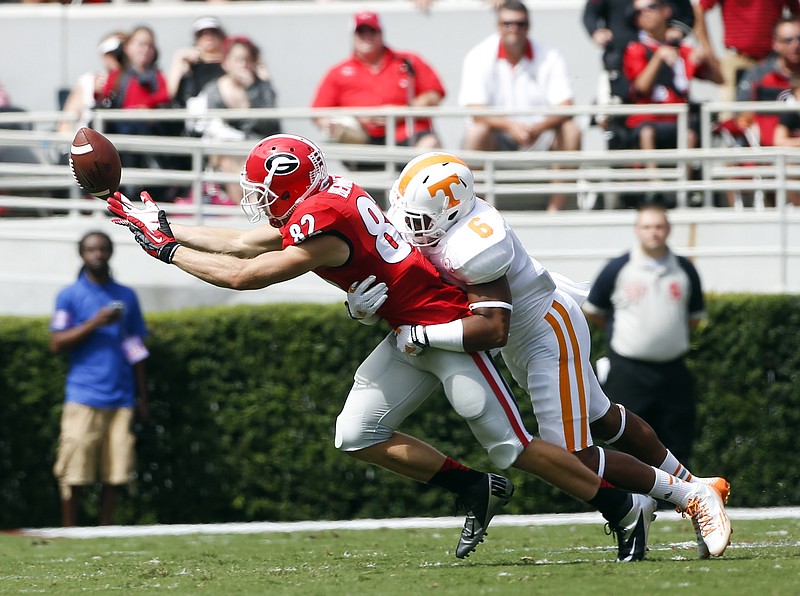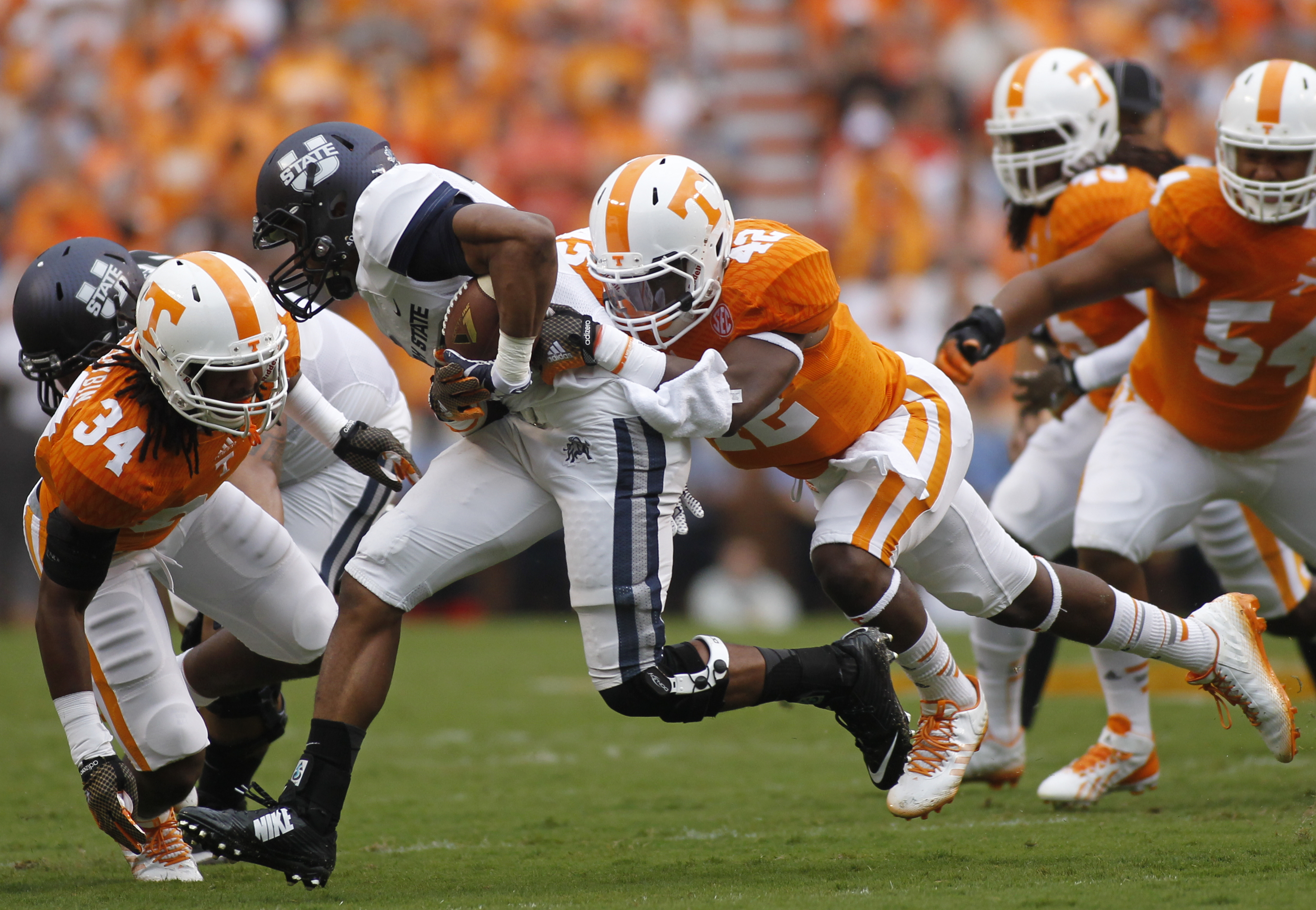KNOXVILLE -- Crunching the numbers and averaging the rankings only told Mark Elder and Tennessee's other football coaches what they already knew.
The Volunteers made big improvements on special teams in 2014.
During their offseason quality control analysis of last season, special teams coordinator Elder and the rest of the assistants who help in the third phase looked at the national rankings in six major statistical categories, averaged them together and composed a chart.
"When you added it all together, we were fourth in the country," Elder said after Tennessee's practice Thursday. "You saw a marked improvement from year one to year two as far as stats-wise with our special teams. That was nice to see."
In five special teams categories -- kickoff coverage, kickoff returns, net punting, punt coverage and punt returns -- the Vols finished 37th or better nationally in 2014 after notching just two top-50 finishes in those categories in 2013.
Tennessee saw a bit of a dropoff in field-goal percentage, the sixth category included in the offseason analysis, but the 20 field goals Aaron Medley made as a freshman was a total bettered by only 15 teams.
Based on ESPN's team efficiency rating, which measures point contributions from offense, defense and special teams to a team's schedule-adjusted per-game scoring margin, Tennessee finished sixth nationally and second in the Southeastern Conference behind only Texas A&M in special teams efficiency.
"Our first year here, you saw a lot of ups and downs, and you certainly saw some downs," Elder said. "You could look at a couple of games where you saw things were not where they needed to be. They hurt us as far as winning and losing ballgames, and I understand that was a problem before we got here with special teams as well.
"You saw a marked difference, and what I thought was good was the consistency of our players. Week in and week out, we performed at a solid level. We didn't have any of those games where you looked at special teams and you said, 'They were a major contributor to us not being successful.' You saw a couple games where we had success that helped us win."
The Vols jumped from 120th nationally in kickoff coverage in 2013 to 23rd in 2014 by allowing nearly 7 yards less per return, and they rose 80 spots from 91st to 11th in the country in punt coverage after surrending a per-return average of 3.2 yards last season.
Those units featured a mix of veteran defensive starters such as A.J. Johnson, Brian Randolph, LaDarrell McNeil and Justin Coleman, but they were predominantly comprised of true freshmen.
After Jalen Reeves-Maybin led Tennessee in special teams tackles as a freshman in 2013, four of the Vols' top seven tacklers on special teams last season -- Cortez McDowell, Rashaan Gaulden, Todd Kelly and Chris Weatherd -- were newcomers.
"I wasn't surprised to see that (because) there's less assignments," Elder said. "It's not as much with their mind tying up their feet. They're able to have one or two assignments, be able to think quick on their feet as far as those couple things and perform pretty successfully. You've seen that consistently with guys."
"(Reeves-Maybin) wasn't able to quite crank it through on the defensive side because he had a lot of learning to do," he added, "but he really excelled on special teams. You saw the same thing (in 2014) with a number of those guys.
"Maybe they didn't quite learn the system on offense or defense, but with the lesser assignments and not as much mentally tying them up, their athleticism is really able to shine on special teams."
During spring practice the past three weeks, Elder has highlighted a clip of the play of the day during Tennessee's special teams periods in practice and posted it to his Twitter account to acknowledge the player. The gesture highlights the competition that the Vols value, which extends to special teams roles, too.
"We're playing the best guys for those spots, and it doesn't matter if you're a senior or a true freshman," Elder said, "Whatever position you're playing, there's a lot of competition. Guys want to be on those units. There's no question about it.
"We put a lot of emphasis on it, and the guys understand the importance as far as us winning and losing ballgames on special teams. Guys want to be on there, not just the young guys.
"You saw guys from last year, the seniors and juniors that are starting, that are good players, and they're knocking on my door saying, 'I want to be on special teams.' It was, 'Well, hey, you better beat somebody out then.'"
Contact Patrick Brown at pbrown@timesfreepress.com.

